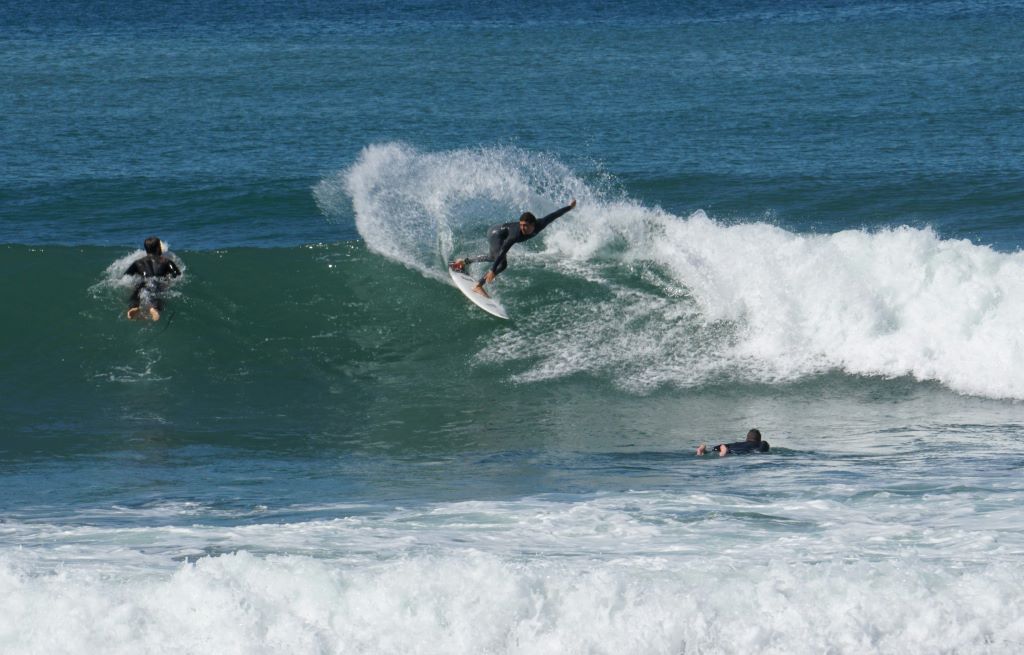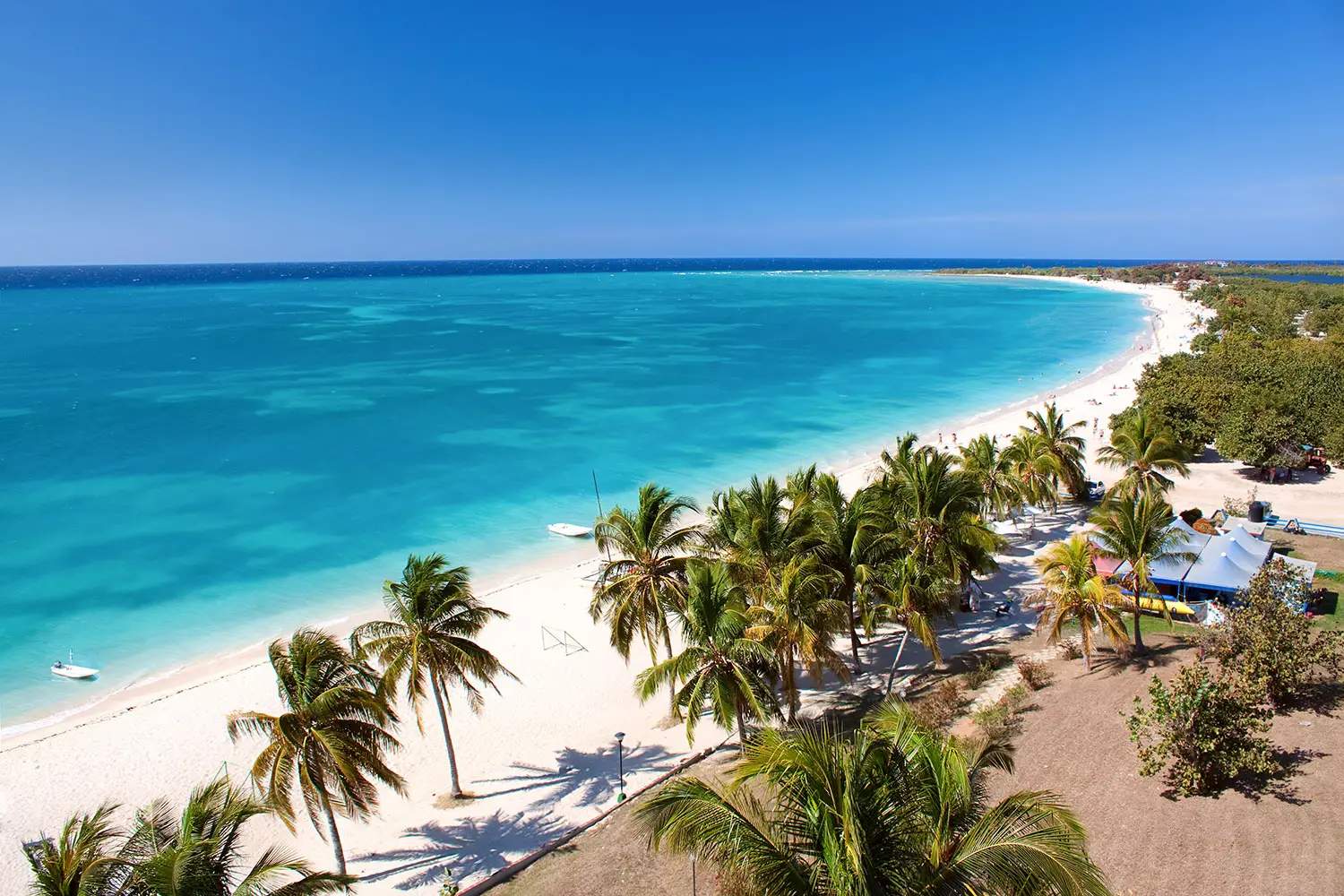

Published on August 9, 2024
Last updated: February 13, 2025
You might think that southern Europe is bathed in eternal sunshine, but that’s not quite the case. If you’re planning a trip to Portugal, read on! We share the best tips about the weather, crowds and cool events, so now you can make sure to visit Portugal at the perfect time.
Portugal temperature and climate throughout the year
The weather is one of the most important things to consider when you’re planning a holiday. Before getting started, it’s worth remembering that even though Portugal is a fairly small country, there is some variety in climate. Generally, the south is warmer and drier than the north. Of course, islands like Madeira and the Azores have their own separate climates, which are quite different from continental Portugal. Here’s what you can expect from Portugal at different times of the year:
The weather in Portugal in January
January is the coldest month of the year in Portugal. In the far northern mountains, there may even be some snowfall, but don’t expect to go skiing! The south and central regions are still sunny, although you’ll still need a jacket. Across the country, average temperatures hover at around 10°C. January is also one of the wettest months of the year, so make sure to pack an umbrella.
February weather in Portugal
February is only slightly warmer than January, with average national temperatures of 11°C. Winter’s not quite over yet, though, and you can expect to see some rain.
March Portugal weather
Many people consider the spring to be the best time to visit Portugal. Temperatures rise across the country, and there’s significantly less rain. You’ll also find the first flowers blooming to welcome the arrival of spring, so this is definitely one of the most beautiful times of the year. Portugal temperatures in March may not yet be hot, but they’re on the rise.
The temperature in Portugal in April
Temperatures continue to rise in April. The national average is 14°C, but in the sunny southern Algarve region, you can expect daily highs of 21°C. It may not be beach weather yet, but a trip to Portugal in April is certainly a good call if you want some early sunshine.
Portugal weather in May
There are warmer temperatures across the country as Portugal enters the month of May. By the time the end of the month arrives, summer is definitely on the way: late May temperatures in Portugal tend to hit the early 20s, with highs of 26°C in Lisbon. The bracing waters of the Atlantic aren’t really ready for swimmers yet, though.
The temperature in Portugal in June
In most of the country, the beach season officially starts in mid-June. This may be your last chance to visit Portugal before the hordes start descending during the summer holidays. Temperatures are warm and pleasant across the country, with highs in the south sometimes hitting the 30s.
Portugal temperature in July
Summer in Portugal is a real sizzler! If you’re a sun worshipper, then this is probably the best time to visit Portugal. In the Algarve, the average daily highs are 30°C, with lows of 22°C. As always, you can expect temperatures to get cooler as you go further north. The northern city of Porto is warm, without being too hot, reaching daily highs of 24°C and lows of 15°C.
The weather in Portugal in August
August is the hottest and driest month of the year in Portugal. The Algarve town of Alentejo, the hottest town in the country, once recorded an eye-watering 47.4°C in August — but don’t worry! In most of the country, daily highs are in the low 30s, making them hot but still bearable.
The temperature in Portugal in September
September is a great time to visit Portugal if you want warmth and sunshine without the crowds. The weather is still pleasant, but it’s cooler than August. In Lisbon, for example, you can expect daily highs of 26°C and lows of 17°C.
The weather and temperature in Portugal in October
In October, temperatures start to dip, but the Algarve is still fairly warm, with daily highs of a pleasant 23°C. You’ll definitely need to pack a jacket for evenings, so no more long, leisurely dinners out on the terrace! The rain starts to fall again this month, especially in the north of the country.
November temperature in Portugal
November marks the true start of the Portuguese rainy season, but it’s still not as wet as northern European countries. If you’re looking for winter sunshine, consider a trip to the southern region of the Algarve. Daily highs of 19°C may be chilly for Portugal, but they’re very pleasant when compared to other parts of Europe.
December temperature in Portugal
Officially being the wettest month of the year, December in Portugal can be rather damp. Daily temperatures are pretty low. Across the country, you can expect averages of 19°C. As always, the north is a little cooler, while the south is a little warmer.
Festivals and events in Portugal
When you’re thinking about the best time to visit Portugal, don’t just focus on the weather. The country also has a number of great cultural events for visitors to enjoy, and you may end up planning your trip around one of them.
Carnival, which usually takes place in February, is a true annual highlight. It’s not quite as raucous as it is in Brazil, but it’s still a wild party, with everyone wearing colourful costumes and taking to the streets. Carnival is particularly enjoyable in cities with large Brazilian communities, like Lisbon and Porto.

Like most Catholic countries, Portugal has a strong tradition of celebrating Easter. You can expect to see large processions winding through the streets of every town and city. The Easter celebrations don’t just last for a weekend, either. They run all throughout Holy Week. Many local businesses shut down during this period.
The Dia da Liberdade, or Freedom Day, is a fascinating time to visit Portugal. It takes place on the 25th of April, marking the Carnation Revolution, which ended Portugal’s dictatorship. You can expect triumphant concerts and street races in the country’s big cities.
The night of the 23rd of June is a great time to visit Porto. This is the Festa de São João, or John the Baptist. Locals head to the beach, light bonfires and enjoy seafood barbecues. There are plenty of concerts — and many of them are free. This is definitely one of the liveliest, most enjoyable nights of the year.

Finally, Portugal at Christmas is always special. You’ll find Christmas markets in early December. Most people enjoy the big day at home with their family, but the fun doesn’t really stop until the Dia de Reis, on the 6th of January. This is traditionally when the Three Kings bring presents to children. You can expect colourful parades, groups of revellers singing, and sweet cakes to sample.
The best time to visit Portugal for surfers
Portugal is a true surfer’s paradise, with many saying that it has the best surf beaches in Europe. The town of Nazaré even boasts the biggest waves in the world. The annual Big Wave Challenge takes place in January, but unless you’re a true expert, you might want to give that one a miss.
In general, you can enjoy good surfing all year round in Portugal. However, new surfers will have a better time in the late spring and early summer when the waves are gentle. More experienced surfers will prefer September and October. The sea isn’t too cold, and the waves are big without being overwhelming.

Peak season in Portugal
If you’ve got no other choice, you’ll travel during the summer holidays — but July and August are always the busiest months in Portugal, particularly in the Algarve’s beach resorts. Prices rise, and you’ll have to book well in advance if you want to get a bargain.
Still want summer weather without the crowds? Then try visiting in May, June or September. Just keep in mind that Portugal lies on the Atlantic coast, so the water is never as warm as in Mediterranean countries like Spain or Greece. Before mid-June, only the very brave will take a dip in Portuguese waters!
The best time to visit Portugal for foodies
You’ll eat well in Portugal at any time of year, but if you’re looking for a true gourmet adventure, the best time to go is October or November. October marks the grape harvest. Head to the Douro region or the other nearby areas to take a tour of wine estates, and watch the traditional activities of harvesting and grape pressing — and yes, you’ll be able to enjoy a glass or two along the way.
November is vital for another of the country’s most important crops: it’s olive season. You can take a tour of an olive mill, see how oil is pressed, and sample the liquid gold. This is a great time to snap up some artisan olive oil from small local producers. Why not pick up an extra bottle or two for Christmas gifts?
The best time to visit Madeira and the Azores
Madeira and the Azores have better climates than mainland Portugal. Keep in mind that summers can be very hot, so spring and autumn offer a more pleasant experience. In Madeira, spring is the whale-watching season. Don’t miss the chance to take a boat trip and see the gentle giants in the waters around the island.

When are you taking your trip to Portugal? Why not join us on one of ours? Our five-day Portuguese holiday shows you the best of the mainland. You’ll see the sights of both Lisbon and Porto, discovering the best that Portugal’s two biggest cities have to offer. Fancy travelling a little further afield? Look no further than our Madeira 360 itinerary, which is ideal for anyone who wants an island getaway.



